- Home
- Joel Goldman
Lou Mason Mystery - 01 - Motion to Kill Page 6
Lou Mason Mystery - 01 - Motion to Kill Read online
Page 6
She and Mason hadn’t gotten off on the right foot when he insisted on bringing his custom-made furniture that had to be bolted to the wall. Angela objected because it limited her options for future office assignments, one of her chief patronage plums. The initial chill between them had barely thawed over the last three months.
“Angela, I need your help. This is absolutely confidential. The firm has—”
“—been named a target of the grand jury’s investigation into O’Malley, and you’re in charge of the cleanup. What do you have left to tell me, Lou?”
Her instant intelligence bothered him, but he’d learned a long time ago that there are no secrets in a law office, especially one managed by Angela Molina.
“Change the locks on Sullivan’s office and the thirty-first-floor conference room. Sandra Connelly and I get the only keys. Don’t have the property manager do it. I don’t want any passkeys floating around.”
“O’Malley’s property managers won’t like it if they can’t get into that office to clean, and they’ll complain about security.”
“Your job is to make them like it, and I know you have the charm to do it. I want the locks changed by noon. Send out a memo that those rooms are off-limits except to authorized personnel.”
“Who are?”
“Sandra Connelly, Phil Rosa, Maggie Boylan, and me. Anyone objects, tell them to talk to me.”
Halfway out the door, he told her to send him copies of all the O’Malley bills for the last five years, including the most current, plus work in progress.
Mason’s next stop was Scott’s office. He was on the phone but waved him in with a signal that said to close the door. He hung up and unloaded.
“I thought we had a deal on how we would handle this. The last thing in the world I want is for that bitch Sandra to be involved. How could you pull a bonehead stunt like that?”
“St. John would rather have a live target than a dead one. You and Sullivan were joined at the hip, which means that you’re available. I’m your friend. Sandra wouldn’t piss on you if you were on fire. If she believes you’re not involved, she’ll have more credibility with St. John than I will.”
“You’re acting like you think I’m in trouble. That worries me.”
“We’re all in trouble. We’ve got to put some distance between you and our investigation. You and Harlan shouldn’t be at the meeting with O’Malley except to make the introductions.”
“Sounds like you’ve got it figured out.” His shoulders drooped as if Mason had let the air out of him.
“Not even close, my friend; not even close.”
CHAPTER FIFTEEN
Mason was ten minutes late to the meeting with Victor O’Malley. Scott Daniels and Harlan Christenson were huddled at the far end of the conference room with O’Malley, a dark-suited trio talking in hushed voices to add weight to their words.
O’Malley had a face like an inflated punctuation mark. A scarred, bulbous nose testified to the hard knocks he’d taken. He had crisp eyes that missed nothing.
Mason knew his story. O’Malley was awarded the Silver Star in Vietnam when he led his platoon in a successful bloody attack on a hill controlled by heavily entrenched Vietcong. He liked to say that’s when he learned the importance of location, after he built a banking and real estate empire in Kansas City. And, he would add, the importance of being willing to risk everything to survive.
Sandra Connelly was seated at the center of the conference table, her back to the door. Mason recognized O’Malley’s son, Vic Jr., leaning over Sandra, trying to make conversation while he stole a glance down the front of her dress. When she didn’t respond, he wandered back toward his father, who kept his back to him, barring Vic Jr. from his inner circle. He pretended not to notice by picking microscopic lint off his black silk shirt.
Vic Jr. had not climbed out of his father’s gene pool. He was round-shouldered, with a powdery complexion, a sharp nose, and close-set eyes. He had a nocturnal look, as though he preferred foraging at night to sitting in the conference room. He was a shadow alongside his father, for whom he’d worked since graduating from college a few years earlier. Mason had met them once before. O’Malley had done the talking. Vic Jr. had done all the whining.
Mason cleared his throat. “Sorry I’m late.”
O’Malley turned toward him, waving off any possible offense.
“Quite all right, Lou,” he said, extending his hand as he walked toward him. “I was just telling Scott and Harlan how much I’m going to miss Richard. I depended on him very much. I don’t know how to replace him.”
O’Malley’s two-handed greeting swallowed Mason’s hand, though he struggled to return the intensity of his grip. At six-five, O’Malley took up a lot of space. His oversized ego filled the rest of the room. A heavy gold ring with the Marine Corps insignia flashed off his right hand.
“It won’t be easy, but I’m sure Scott and Harlan will take good care of you.”
“Of course, of course they will. So long as you keep me out of jail.”
Harlan put his arms around Mason and O’Malley, forming a new circle. “Lou, I’ve told Victor that you and Sandra need to talk with him about the government’s case and the subpoena for our records. Take good care of him. Victor has been very good to us.”
They all laughed more than Harlan’s comment deserved. Mason closed the door as Harlan and Scott left the conference room, then sat next to Sandra. Father and son took seats opposite them.
Mason led off. “Victor, did you know that Richard Sullivan and the firm were targets of the grand jury investigation?”
“Cut to the chase, eh? I like that, young man. Yes. Richard told me. He said it was a sign that St. John was desperate but that I didn’t have anything to worry about. He said that you told him I was in the clear.”
Mason studied O’Malley for some indication that O’Malley expected him to believe that story. O’Malley’s face was a pool of calm water.
“We both know that’s bullshit. You’re smart enough to know how much trouble you’re in. The U.S. attorney doesn’t go after the defendant’s lawyers unless he thinks he can squeeze them to turn on their client to save their own hides.”
O’Malley didn’t flinch. “Then suppose you tell me how much trouble I’m in.”
“Here’s what I know. Your bank loaned money to real estate partnerships you controlled that were in financial trouble. The bank never should have loaned the money because the partnerships couldn’t pay the money back. You knew it and the bank knew it. The loans cost the bank fifty million. The government says that was criminal fraud.”
“And my lawyer advised me that the loans were reasonable business investments that turned sour. That’s not a crime.”
“And I’m not the jury. Did your lawyer get any of that money before he turned up dead?”
“I’m sure Richard charged for his services and was paid.”
“Did he collect for anything other than his legal fees?”
O’Malley offered a patient smile. “I didn’t write the checks. You’d have to ask him.”
“You begin to see the problem here, Victor. Richard Sullivan is dead. You haven’t forgotten, have you?”
O’Malley’s eyes narrowed and his congenial veneer evaporated.
“No, I haven’t, young man. My friendship with Richard was the only reason I stuck with this firm and didn’t hire a Wall Street heavyweight. I may have to rethink that now that he’s gone.”
“You may need a Wall Street firm sooner than you think. If the firm is indicted, we’ll claim that we didn’t know the true nature of your actions because you concealed them. The court will waive your attorney-client privilege, and we can fight over the movie rights.”
O’Malley nodded. “All right. You’ve made your point. Better to hang together than separately. What else do you want to know?”
“St. John has subpoenaed our files on Quintex Land Corporation. I want to know why.”
“I don’t know. The
bank didn’t loan any money to Quintex.”
“What does Quintex do?”
“I use it to buy and sell land.”
“Scott said that Sullivan handled the real estate deals but that the company has made other investments besides real estate.”
“Look, Richard set up more corporations for me than I could keep track of. I certainly can’t remember every deal that I ever did. You’ve got the records. You figure it out and tell me if I’ve got another problem besides the loans.”
Mason shook his head, realizing the struggle that lay ahead. O’Malley wasn’t going to tell him anything he didn’t have to. Mason couldn’t blame him. They had met only once before. The lawyer O’Malley trusted was dead, and he hadn’t decided whether he could trust Mason.
Mason and Sandra spent the next two hours hammering him on Quintex, but they didn’t know enough to ask the right questions. They needed time to plow through all the material, so they scheduled another meeting for the following Monday afternoon.
“Well, what do you think?” Mason asked Sandra after O’Malley and his son left.
“No jury will ever believe that someone that successful could know so little about how he made all that money. He’s not going to help us more than he has to.”
“Doesn’t he know that the harder he makes our job, the more likely it is that he gets convicted?”
“Maybe. Unless he’s more worried about what the government doesn’t know than what it does know. We better buy some time from St. John.”
“Our appointment is at ten tomorrow morning. Let’s have a look at Sullivan’s office.”
The locksmith was just finishing under Angela’s watchful eye. She gave them the Girl Scout salute, handed each of them a key, and posted the No Admittance sign on the door.
“The office is secure, so let’s leave it until tomorrow. Maybe we’ll have a better idea of what we’re looking for after we meet with St. John,” Sandra said.
CHAPTER SIXTEEN
When Mason returned to his office, he found six banker’s boxes stacked against one wall. Each box was labeled Douchant v. Philpott Safety Systems. There was a note from Scott taped to one of the boxes that read, A deal is a deal. Save the firm and take care of Tommy. Then take the rest of the day off.
Mason ran his hand over the boxes, deciding whether to open them. He knew that when he did, he’d have no more excuses to quit the firm or to blame the result in Tommy’s trial on fickle courtroom gods. He used the letter opener Scott had given him for being best man in his wedding to cut the tape that held the lids on each box.
The first thing he saw was Tommy’s safety belt, the Philpott Safety System logo embossed on the back. It was more harness than belt. Tommy wore it wrapped around his waist and between his legs. A six-foot rope called a lanyard was attached to the belt. A hook shaped like a giant safety pin was attached to the other end of the rope.
Tommy had been on a scaffold finishing cement on an elevator tower the day he was hurt. He hooked the lanyard to a steel loop that had been driven into the cement. Believing he was secure, he reached as far as he could to his right to smooth the fresh cement, when the hook slipped out of the bolt and he fell. There were no witnesses.
Mason picked up the belt, the metal cold in his hand. He worked the action on the safety hook just as he had in front of the jury, demonstrating how the slightest pressure caused it to slide open and how easy it was for Tommy to fall. He wondered again what he could have done differently to win Tommy’s case.
Immediately after the accident, Tommy’s employer gave the belt to Warren Philpott, the owner of Philpott Safety Systems, to examine it for defects. Philpott, to no one’s surprise, claimed there was nothing wrong with it.
The expert safety engineer Mason hired said there was nothing wrong with the way the belt was made. It worked as it was supposed to. But the expert said the design was defective because it didn’t have a lock to prevent the hook from opening and separating from its anchor.
Mason’s lawsuit against Philpott was based on the unsafe design. A tough case to win since Philpott’s experts said the lock wasn’t necessary if the hook was used properly. Philpott had sold hundreds of thousands of the hooks. When a hook failed and Philpott was sued, he did what many manufacturers tried to do: settle if he could, the cheaper the better, and win the cases that went to trial.
Philpott’s lawyers claimed the accident was Tommy’s fault because he did a lousy job of securing his hook. They offered to settle because they were afraid that the jury would be sympathetic to Tommy’s injury—especially with his wife testifying about life with a paraplegic.
“Two million bucks is a lot of money,” Mason told Tommy the day before the trial. “After attorneys’ fees and case expenses, you’ll net close to a million-two. Between what your wife makes and what you can earn on that money, you’ll be able to take care of your family.”
Tommy didn’t hesitate with his bitter answer. “It’s not enough, Lou. Not after what those bastards did to me.”
“Those bastards aren’t paying you a penny. Philpott’s insurance company will write the check. This isn’t about revenge, Tommy. It’s about taking care of your family. You can’t take the chance that the jury will send you home empty-handed.”
Tommy glared at Mason from his wheelchair. “I’m willing to take that chance, Lou. If you don’t have the guts, get one of your partners to try the case.”
Mason stiffened at his friend’s challenge. “Tommy, this isn’t double dare like when we were kids. It’s not about my guts. It’s about your brains. Take the money.”
“Screw the money. Just win my damn case!”
Tommy didn’t tell Mason that his partner, Stephen Forrest, had convinced him to roll the dice for a bigger payday. LeAnn, Tommy’s wife, wheeled him out of the courtroom after the trial. They hadn’t spoken since.
Mason put the safety belt back in the box and sat at his computer. Although it had been only four months since the trial, he wanted to know if there had been anything new in the press about Philpott Safety Systems. The only hit was an article in the Kansas City Star about the verdict.
Mason searched Warren Philpott’s name. Again there was only one hit, a newspaper article published a week ago about a domestic disturbance at the Philpotts’ home.
Ellen Philpott had thrown her husband out the front door and his belongings out a second-story window, both during a wind-lashed thunderstorm. Warren responded by pounding on the front door and throwing a rock through a window when she refused to let him back in. A neighbor called the police.
Ellen explained to the police that she kicked her husband out for cheating on her and that she threw his clothes out because she was doing her spring cleaning. When she added that they were getting divorced and that the judge had granted her exclusive possession of the house, the police ushered her husband away, leaving his clothes to soak in the rain.
When it stopped raining, she collected Warren’s clothes on the patio, where she said they would remain until they rotted. Mr. Philpott declined comment.
Mason remembered Ellen Philpott, sitting in the courtroom for five days, first row behind the rail, far side from the jury box, a flexed smile fixed on the back of her husband’s neck. Her own neck, thin-skinned and thick veined, bobbing and weaving with the testimony. She nodded at Mason each morning as they assembled, as if they shared a secret. Mason wanted to ask her what the secret was but knew that Philpott’s lawyer wouldn’t let him talk with her. That was then. Mason decided to work a visit to Ellen into his schedule, hoping to make an angry, wronged spouse his new best friend.
CHAPTER SEVENTEEN
Mason spent the rest of the day talking to clients. His secretary called at five fifteen to tell him that Kelly Holt was waiting to see him.
“Sorry, I’m late,” she said as she sat across from him.
“No problem. I couldn’t stand another sympathy call. Your timing was perfect. I apologize for acting like a jerk yesterday. It’s not every
day that I get to identify my senior partner’s body.”
Mason couldn’t decide if she looked better in or out of uniform. She was wearing an indigo suit, an open-necked, lime blouse, and a ruby and jade striped scarf. A gold clip held her hair snugly in back. It was a toss-up. Better yet, she wasn’t wearing a gold band to match her gold earrings and choker chain.
“Forget it. I never get used to the bodies either.”
“Last night you said that Sullivan was murdered. How do you know?”
“Sorry, Counselor. It’s my turn to claim confidentiality.”
“Why? Am I still a suspect?”
“What do you think?”
“That everybody’s a suspect until you catch the killer.”
“Exactly. You can either confess or tell me who did it.”
“I can’t do either. But I doubt that someone would try to kill me if I was the killer.” Mason told her about his drive back from the lake. “I’m parked in space number 110 in the parking garage. You can check the damage to my car and I can show you the place where I went off the road.”
“I’ll do that. Why would Sullivan’s killer want to kill you?”
“Maybe the killer thinks I know something that would identify him or her. Or maybe the killer thinks Sullivan told me something he doesn’t want anyone else to know. Or maybe it was just road rage.”
Kelly answered with professional neutrality. “I can’t protect you up here. Do you want me to ask the local cops to put somebody on you?”
Mason didn’t know whether to be pleased or frightened that she made the offer. If she believed him, she might not suspect him. But if she thought he needed protection, he might be in real danger. He was used to fighting through a pile of muddy rugby players battling over a slippery football. But he’d never played against a killer, and the prospect now didn’t seem real. And he didn’t like asking someone to take care of him.

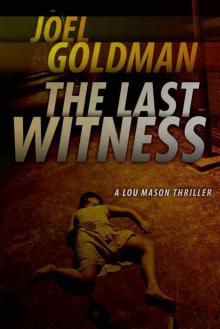 The last witness lm-2
The last witness lm-2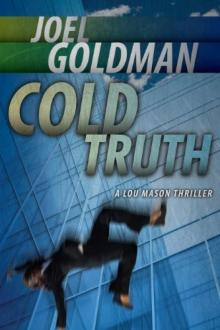 Cold Truth
Cold Truth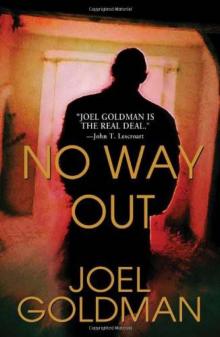 No Way Out (2010)
No Way Out (2010)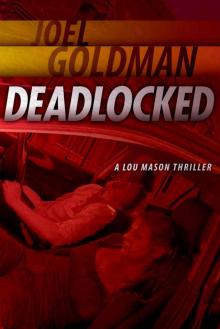 Deadlocked (Lou Mason Thrillers)
Deadlocked (Lou Mason Thrillers)![[Lou Mason 01.0] Motion to Kill Read online](http://i1.bookreadfree.com/i1/03/24/lou_mason_01_0_motion_to_kill_preview.jpg) [Lou Mason 01.0] Motion to Kill
[Lou Mason 01.0] Motion to Kill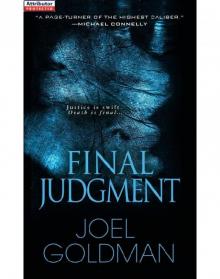 Final Judgment
Final Judgment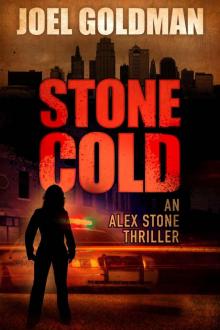 Stone Cold
Stone Cold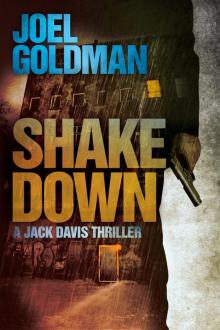 Shakedown
Shakedown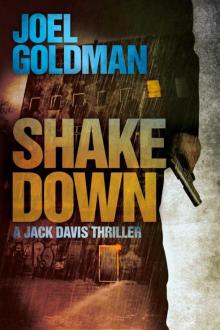 Shakedown jd-1
Shakedown jd-1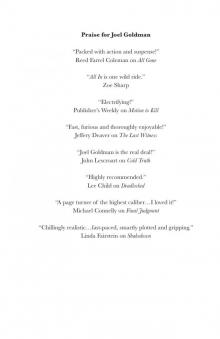 All Gone
All Gone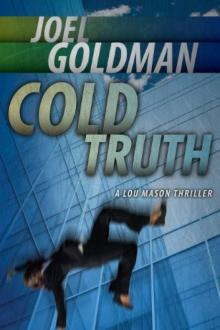 Cold truth lm-3
Cold truth lm-3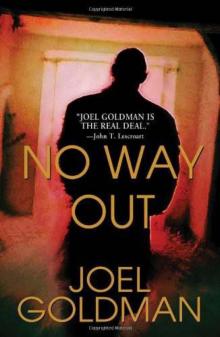 No way out jd-2
No way out jd-2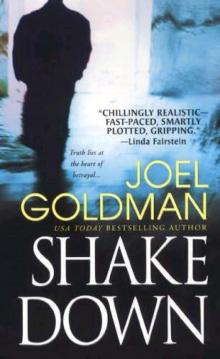 Jack Davis Mystery - 01 - Shakedown
Jack Davis Mystery - 01 - Shakedown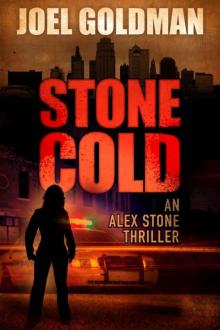 Stone Cold as-1
Stone Cold as-1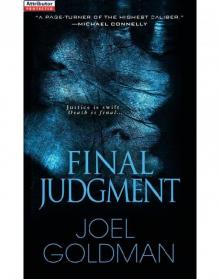 Final judgment lm-5
Final judgment lm-5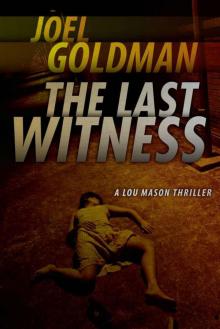 Lou Mason Mystery - 02 - The Last Witness
Lou Mason Mystery - 02 - The Last Witness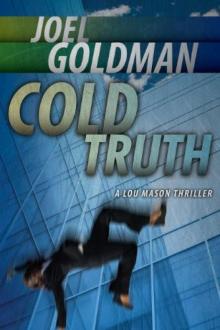 Lou Mason Mystery 03-Cold Truth
Lou Mason Mystery 03-Cold Truth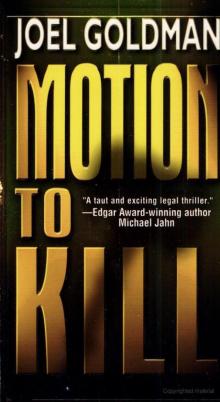 Motion to Kill
Motion to Kill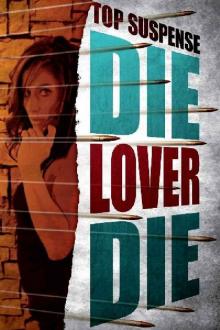 Die, Lover, Die!
Die, Lover, Die!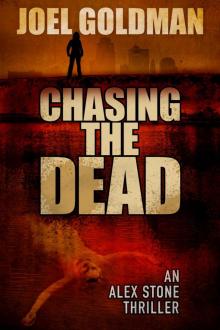 Chasing The Dead (An Alex Stone Thriller)
Chasing The Dead (An Alex Stone Thriller)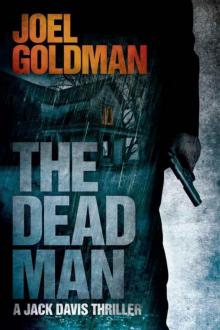 The Dead Man
The Dead Man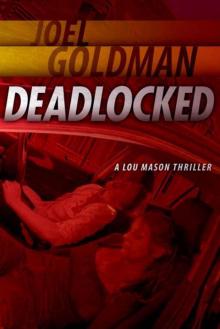 Deadlocked lm-4
Deadlocked lm-4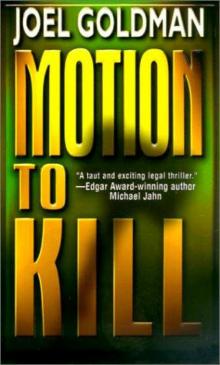 Lou Mason Mystery - 01 - Motion to Kill
Lou Mason Mystery - 01 - Motion to Kill Die, lover, die
Die, lover, die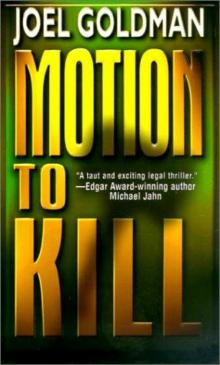 Motion to Kill lm-1
Motion to Kill lm-1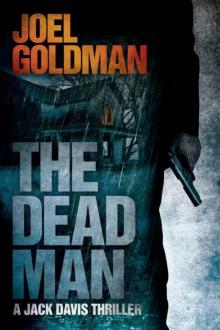 The Dead Man jd-3
The Dead Man jd-3